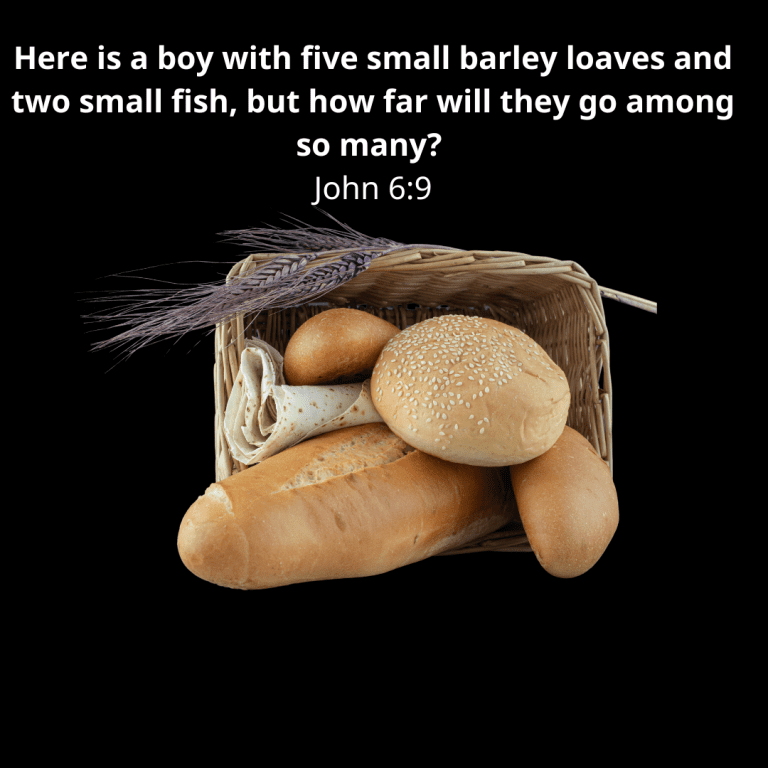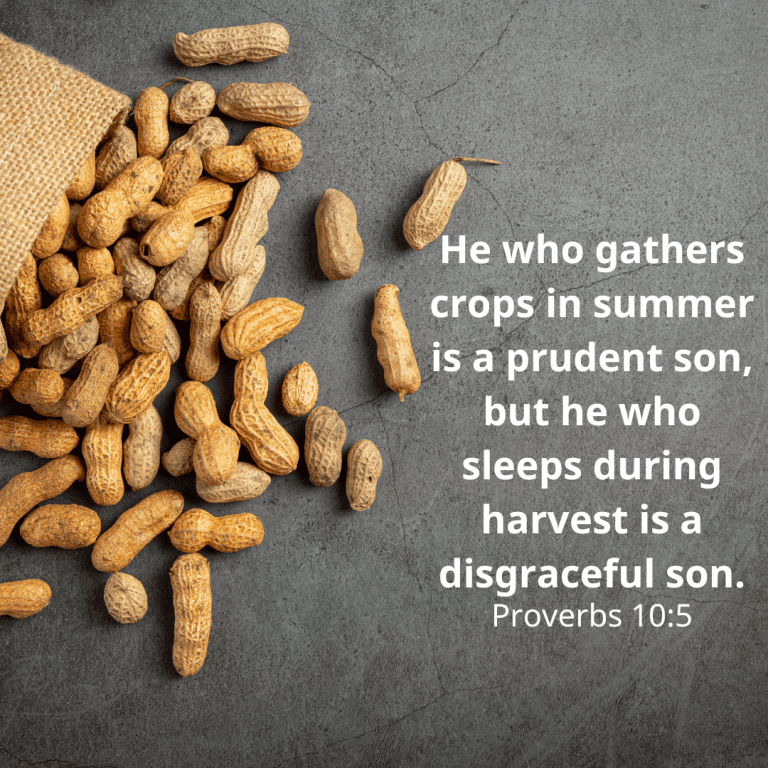The Twelve Apostles
(Mark 3.13-19Luke 6.12-16)1 Jesus called his twelve disciples together and gave them authority to drive out evil spirits and to heal every disease and every sickness. 2 These are the names of the twelve apostles: first, Simon (called Peter) and his brother Andrew; James and his brother John, the sons of Zebedee; 3 Philip and Bartholomew; Thomas and Matthew, the tax collector; James son of Alphaeus, and Thaddaeus; 4 Simon the Patriot, and Judas Iscariot, who betrayed Jesus.
The Mission of the Twelve
(Mark 6.7-13Luke 9.1-6)5 These twelve men were sent out by Jesus with the following instructions: “Do not go to any Gentile territory or any Samaritan towns. 6 Instead, you are to go to the lost sheep of the people of Israel. 7 Go and preach, ‘The Kingdom of heaven is near!’ 8 Heal the sick, bring the dead back to life, heal those who suffer from dreaded skin diseases, and drive out demons. You have received without paying, so give without being paid. 9 Do not carry any gold, silver, or copper money in your pockets; 10 do not carry a beggar's bag for the trip or an extra shirt or shoes or a walking stick. Workers should be given what they need.
11 “When you come to a town or village, go in and look for someone who is willing to welcome you, and stay with him until you leave that place. 12 When you go into a house, say, ‘Peace be with you.’ 13 If the people in that house welcome you, let your greeting of peace remain; but if they do not welcome you, then take back your greeting. 14 And if some home or town will not welcome you or listen to you, then leave that place and shake the dust off your feet. 15 I assure you that on the Judgment Day God will show more mercy to the people of Sodom and Gomorrah than to the people of that town!
Coming Persecutions
(Mark 13.9-13Luke 21.12-17)16 “Listen! I am sending you out just like sheep to a pack of wolves. You must be as cautious as snakes and as gentle as doves. 17 Watch out, for there will be those who will arrest you and take you to court, and they will whip you in the synagogues. 18 For my sake you will be brought to trial before rulers and kings, to tell the Good News to them and to the Gentiles. 19 When they bring you to trial, do not worry about what you are going to say or how you will say it; when the time comes, you will be given what you will say. 20 For the words you will speak will not be yours; they will come from the Spirit of your Father speaking through you.
21 “People will hand over their own brothers to be put to death, and fathers will do the same to their children; children will turn against their parents and have them put to death. 22 Everyone will hate you because of me. But whoever holds out to the end will be saved. 23 When they persecute you in one town, run away to another one. I assure you that you will not finish your work in all the towns of Israel before the Son of Man comes.
24 “No pupil is greater than his teacher; no slave is greater than his master. 25 So a pupil should be satisfied to become like his teacher, and a slave like his master. If the head of the family is called Beelzebul, the members of the family will be called even worse names!
Whom to Fear
(Luke 12.2-7)26 “So do not be afraid of people. Whatever is now covered up will be uncovered, and every secret will be made known. 27 What I am telling you in the dark you must repeat in broad daylight, and what you have heard in private you must announce from the housetops. 28 Do not be afraid of those who kill the body but cannot kill the soul; rather be afraid of God, who can destroy both body and soul in hell. 29 For only a penny you can buy two sparrows, yet not one sparrow falls to the ground without your Father's consent. 30 As for you, even the hairs of your head have all been counted. 31 So do not be afraid; you are worth much more than many sparrows!
Confessing and Rejecting Christ
(Luke 12.8Luke 9)32 “Those who declare publicly that they belong to me, I will do the same for them before my Father in heaven. 33 But those who reject me publicly, I will reject before my Father in heaven.
Not Peace, but a Sword
(Luke 12.51-53Luke 14.26Luke 27)34 “Do not think that I have come to bring peace to the world. No, I did not come to bring peace, but a sword. 35 I came to set sons against their fathers, daughters against their mothers, daughters-in-law against their mothers-in-law; 36 your worst enemies will be the members of your own family.
37 “Those who love their father or mother more than me are not fit to be my disciples; those who love their son or daughter more than me are not fit to be my disciples. 38 Those who do not take up their cross and follow in my steps are not fit to be my disciples. 39 Those who try to gain their own life will lose it; but those who lose their life for my sake will gain it.
Rewards
(Mark 9.41)
40 “Whoever welcomes you welcomes me; and whoever welcomes me welcomes the one who sent me. 41 Whoever welcomes God's messenger because he is God's messenger, will share in his reward. And whoever welcomes a good man because he is good, will share in his reward. 42 You can be sure that whoever gives even a drink of cold water to one of the least of these my followers because he is my follower, will certainly receive a reward.”
Ŋen ŋəled̶a red̶ ldəməñe ləɽijan ildi ləd̶weinu
(Margus 3:13-19Luka 6:12-16)1 Yesu nəŋundəd̶aici ṯaləmis ilëɽəŋu ldəɽo isi yeɽo red̶ neməñe eɽijan nəŋəlnaice ŋələŋe ṯa aiyəmamiñi nusila neicia led̶a nano pred̶, na ṯa aiyəkeid̶i led̶a pred̶ id̶əmwa ed̶en. 2 Na ndrəŋ nəled̶a ildi ləd̶weinu red̶ ldəməñe ləɽijan fəŋulu, Siman (igi gënəcənu Buṯrus), na Anḏərawus, orəba gəlëɽəŋu, na Yagub igi gəɽo id̶ia gə-Sabḏi, na Yuanna orəba gə-Yagub, 3 na Filibus, na Bard̶ulamawus, na Ṯoma, na Maṯṯa igi gəfo gətəmeicia ṯolba, na Yagub igi gəɽo id̶ia g-Alfi, na Ṯaḏḏawus, 4 na Siman Alganawi, na Yaud̶a Iskariyuṯi igi gənaid̶o Yesu.
Ŋen Yesu gəd̶waṯo led̶a red̶ ldəməñe ləɽijan ṯa altwod̶e ŋəmëɽriaŋa
(Margus 6:7-13Luka 9:1-6)5 Yesu nəŋəd̶waṯe led̶a red̶ ldəməñe ləɽijan nəŋəlwaɽəṯi ṯa, “Ñerṯe ñagəma d̶ad̶ d̶ənəŋ d̶əbəṯa alo eled̶a gerṯe laɽo Alyawuḏ, na ñerṯe ñagəbënṯia irnuŋ gənəŋ gə-Samariyin. 6 Orn mbər eyaŋala isi yeṯwo eled̶a l-Israyil. 7 Liga ñagəbakaldaica lwaɽəṯr led̶a ṯa, ‘Ŋələŋe ŋelo ŋafo ṯwaiñ’. 8 Akeid̶r led̶a lwuma, tud̶ir led̶a laiyo, təɽer led̶a ləgəro, miñr nusila led̶a nano neicia. Ñagananeinu ŋen məɽəməɽeñ, nṯia naicr led̶a ŋen məɽəməɽeñ. 9 Ñerṯe ñagapa gərus igërrua, 10 walla ërrua ŋen ŋanṯa ed̶ad̶, walla ndrenia nəɽijan, illi erenia gonto, walla nḏəbina rəmanəŋ rəɽijan, walla ŋəfra. Ŋen ŋaŋəra ṯa ed̶a gəbəd̶ia ŋəmëɽria aŋəmicini.
11 “Ndə ñagəbënṯia irnuŋ gənəŋ, eɽəd̶r led̶a əsëgi gərəjad̶aṯo eŋen ṯa ñaɽaŋe egeɽa gəlëɽəŋu, na ɽaŋəd̶aṯrau ṯia oro ñaməñe. 12 Ndə ñagəbënṯia egeɽa, ‘Nər led̶a ëiñua’. 13 Ndə led̶a legeɽa ləŋënṯənde, ŋgiṯr d̶ənëiñua d̶əd̶ëuṯaralo ed̶alo ad̶əfeṯe eled̶a ildei. Orn ndə led̶a lero ləndəŋënṯia, ŋgiṯr d̶ənna ëiñua d̶əd̶ëuṯaralo ed̶alo ad̶əndoɽəbaṯe nano. 14 Ndə ed̶a gənəŋ gero gəndəŋënṯia, na gəned̶o gənna ŋen eŋalo, na ndə ñagəməña eɽa gəlëɽəŋu walla irnuŋ ñapweini abəɽətua ndrəmanəña eralo. 15 Đeṯəm igandəlwaɽəṯia, ṯa eloman lakəl Rəmwa rid̶i arwakəme alo, d̶akəmia ŋen ŋanṯa irnuŋ gakəl d̶id̶i ad̶oɽreṯe d̶əməñaṯo d̶akəmia d̶alo yi-Səḏum na d̶alo yi-Gamura.
Ŋen ŋəliga ləŋen ŋubwa
(Margus 13:9-13Luka 21:12-17)16 “Seid̶r, igandəd̶waṯa ñagarno yaŋala isi yefo igalkəraiñ iligano, ŋen ŋafəṯia ləŋeṯr ŋen nəsi garno imwa yeicia na ɽaŋr ñagərra enare garno alamam. 17 Rəmojəd̶r eled̶a ŋen ŋanṯa lënəŋulu lid̶i alndənaice nələŋ ini nərarraid̶ia ṯa anəndakəme, na lid̶i alndëpwi emajma esen, 18 na ñagid̶i ñamameini nələŋ nëiñua noɽra ŋen ŋanṯañi, ṯa ñaɽeṯe d̶aməd̶aṯa d̶əlëɽəñi iŋulu, na eled̶a ɽetəɽeteo. 19 Ndə led̶a ləndənaid̶ia, ñerṯe ñagəgərd̶ia ṯa ñagalwaɽa ṯau, ŋen ŋanṯa iliga lakəl d̶urri ñagid̶i ñërrəŋeini ŋen ṯa ñaɽwaṯe. 20 Gerṯe fəñaŋ ñəŋgi ñagəɽwata orn f-Usila g-Eṯalo igi gəɽwataṯa eñaŋ. 21 Ed̶a gid̶i aŋənaid̶e orəba ṯa aŋəɽiñəni, na eṯenia yid̶i aiyənaid̶e ŋere ŋəlëɽəŋu, na ñere ñid̶i aiñəṯwod̶e ñəgeiya ləŋgenanda na eṯenanda na aiñələɽiñe. 22 Ñagid̶i ñanid̶əni eled̶a pred̶ ŋen ŋanṯa irəŋ gəlëɽəñi. Orn ed̶a igi gəɽiñaṯa ŋen iŋi ŋubwa liga gəmulu gəbaiya gënəŋu gid̶i aŋëbərni. 23 Ndə led̶a ləndənaica ŋen ŋubwa irnuŋ gənəŋ, obəd̶aṯr irnuŋ gwomən. Đeṯəm igandəlwaɽəṯia ṯa, ñagaber ñagid̶i ñërənṯi irnuŋ pred̶ g-Israyil ṯa ñaɽiñad̶aṯe ŋəmëɽria liga Id̶ia gə-Led̶a gəmulu geṯo.
24 “Ed̶a igi gërrəŋeinu ŋen, gero goɽra ned̶a gəbërrəŋaid̶ia ŋen, na ebai gero goɽra neləŋ gəlëɽəŋu. 25 Fəŋen ŋwaiña ndə ed̶a gërrəŋeinu ŋen nəŋarneṯe ed̶a gəbërrəŋaid̶ia ŋen, na ebai nəŋarneṯe eləŋ gəlëɽəŋu. Ndə led̶a lënəcu ed̶a gerṯo eɽa Balsabul, lënəŋulu lid̶i aləd̶aməce led̶a eŋen ildi legeɽa gəlëɽəŋu kaiñ ləməñaṯo ŋen iŋi.
Ŋen Yesu gwonḏəco ṯaləmis ilëɽəŋu ṯa aid̶əñiṯi Rəmwa
(Luka 12:2-7)26 “Ñerṯe ñagəd̶əñia led̶a. Laŋge pred̶ lətërnu lid̶i alërrəŋeini, na laŋge pred̶ lələbijənu lid̶i alələŋini. 27 Ŋen iŋi igəlwaɽəṯənde iŋərəm lwaɽr egarrerre na ŋen iŋi ñagənna ŋoɽoma lwaɽr pəlelo. 28 Ñerṯe ñagəd̶əñia led̶a ildi ləɽiña aŋəno orn laber ləɽwad̶aṯa ləɽiña nusila. Đəñiṯəmar igi gəɽwad̶aṯa gəməndad̶a nusila na aŋəno com egalo yeŋen ŋubwa kaiñ. 29 Gerṯe uɽir gilid̶ənu gəɽijan gərus yarno ṯarefa orn ndə uɽir gənəŋ gəbiɽəṯia alo, illi ndə Eṯalo gəŋënṯu ŋen. 30 Orn ñaŋ, iria enəŋoɽwa eŋalo yumad̶einu. 31 Nṯia ñerṯe ñagəd̶əñialo. Ñagerṯo ŋen ŋoɽra ŋwaiña ŋəməñaṯo uɽir gwaiña.
Ŋen ŋəd̶əṯad̶a ŋen ŋeicia na d̶əned̶a Almasiya
(Luka 12:8-9)32 “Led̶a pred̶ ildi ləbaṯa ṯa ləlëɽəñi led̶a nëiñua, igid̶i elwaɽe ṯa lënəŋulu lalëɽəñi com Bapa gəlëɽəñi nëiñua igi gəfo elo. 33 Orn led̶a pred̶ ildi ləñabəlaica led̶a nëiñua, igënəñi igid̶i elabəlaice Bapa gəlëɽəñi nëiñua igi gəfo elo.
Đëuṯaralo d̶ero, orn d̶operria
(Luka 12:51-53Luka 14:26-27)34 “Ñerṯe ñagəbaṯa ṯa egeṯo ṯa enaice led̶a d̶ëuṯaralo eləbate na egero egeṯo ṯa ema d̶ëuṯaralo orn ṯa ema d̶operria. 35 Egeṯo ṯa yid̶i maje gəgeiya eṯen, na ŋere ŋageiya ləŋgen, na una gəɽəbwa gəgeiya unin gəɽəbwa, 36 na led̶a legeɽa ged̶a gənəŋ lid̶i algeid̶e. 37 Ed̶a igi gəbwa eṯenga walla ləŋgenga gəməñaṯo gəbwaiñiya, gënəŋu gaber gərəjad̶aṯa eŋen ṯa aŋaiñəteṯe. Na ed̶a igi gəbwa ñereña gəməñaṯo gəbwaiñiya, gënəŋu gaber gərəjad̶aṯa eŋen ṯa aŋaiñəteṯe. 38 Ed̶a igi gəber garrəpa d̶uɽi d̶əlëɽəŋu aŋaiñəteṯe, gënəŋu gaber gərəjad̶aṯa eŋen ṯa aŋaiñəteṯe. 39 Ed̶a igi gərəmoṯwa d̶əməṯia d̶əlëɽəŋu, gënəŋu gid̶i aŋəṯwe d̶əməṯia com, orn ed̶a igi gəbaiya ŋen ŋanṯa ñi gënəŋu gid̶i aŋəməṯe d̶eṯəm.
Ŋen ŋəd̶əpəɽa iŋəmëɽria
(Margus 9:41)40 “Ed̶a gəŋënṯənde gënəŋu gəŋënṯəñi na ed̶a igi gəŋënṯəñi gënəŋu gəŋënṯəma igi gəd̶waṯəñe. 41 Ed̶a igi gəŋënṯu nabi ŋen ŋanṯa yaɽo nabi, gënəŋu gid̶i aŋəneini d̶əpəɽa d̶ənabi, na ed̶a igi gəŋënṯu ed̶a gəd̶urwaṯo eŋen ŋen ŋanṯa gënəŋu gəd̶urwaṯo eŋen, gënəŋu gid̶i aŋəneini d̶əpəɽa d̶ed̶a gəd̶urwaṯo eŋen. 42 Na ed̶a igi gənaica maje gənəŋ eled̶a ildi lərresi ŋawa ŋəmole ŋətëfr ṯa aŋəṯi ŋen ŋanṯa maje gaiñəteṯa, d̶eṯəm, igandəlwaɽəṯia ṯa, gënəŋu gid̶i aŋəpəɽəni.”



